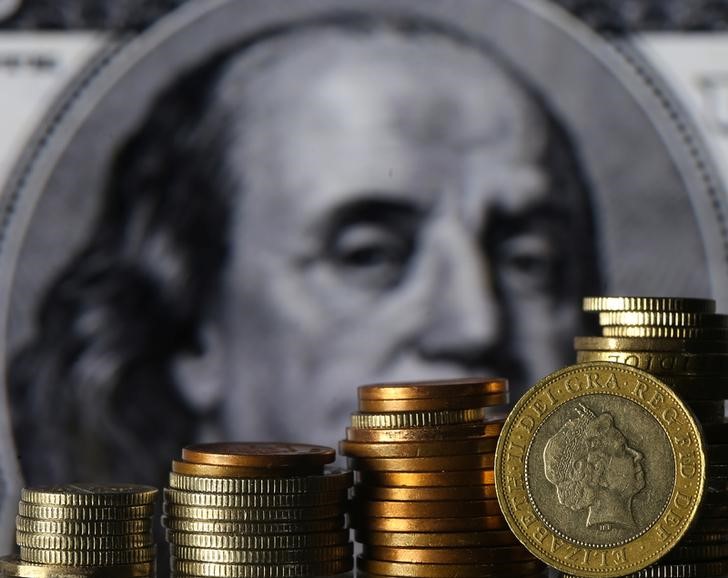By Tom Westbrook
HONG KONG (Reuters) - The dollar nursed losses on Thursday amid gathering doubts about a mooted Sino-U.S. trade deal, while the volatile pound was on edge as Britain and the European Union scrambled to secure a last-minute Brexit deal.
As the greenback steadied on most major currencies, the biggest gainer was the Australian dollar
Sterling
It has surged some 5% since last week as negotiations stepped up.
"I think we're all grateful that we might be coming to some sort of an end to the recent saga," said Nick Twidale, director of Sydney-based trade finance provider Xchainge.
"Anything that isn't a hard Brexit is going to be positive for the sterling," he said, adding a deal or something close to one could push the pound to $1.3500 or above.
Failure could push it below $1.2200, Commonwealth Bank of Australia (CBA) analyst Richard Grace said in a note.
The U.S. dollar, which had dropped on Wednesday as U.S. retail sales fell for the first time in seven months, hung near its overnight lows as earlier optimism about an announced "phase 1" of a trade deal with China ebbed in the absence of details.
U.S. and Chinese trade negotiators are working on nailing down text for the first phase of the trade deal for their presidents to sign next month.
"Even if a deal is signed, it remains uncertain if the obligations can be fully met on both sides," strategists at Singapore's DBS Bank said in a note.
The dollar drifted lower against the euro (EUR=) to $1.1076 and was steady against the Japanese yen
The Aussie
"This is just what the doctor ordered," said CommSec Chief Economist Craig James.
"There is no reason for the Reserve Bank to cut rates again in November – giving the central bank more time to gauge the effectiveness of early rate reductions."
Lingering worries about trade tensions between the United States and China kept a lid on gains for trade-exposed currencies, though.
The New Zealand dollar

China's yuan